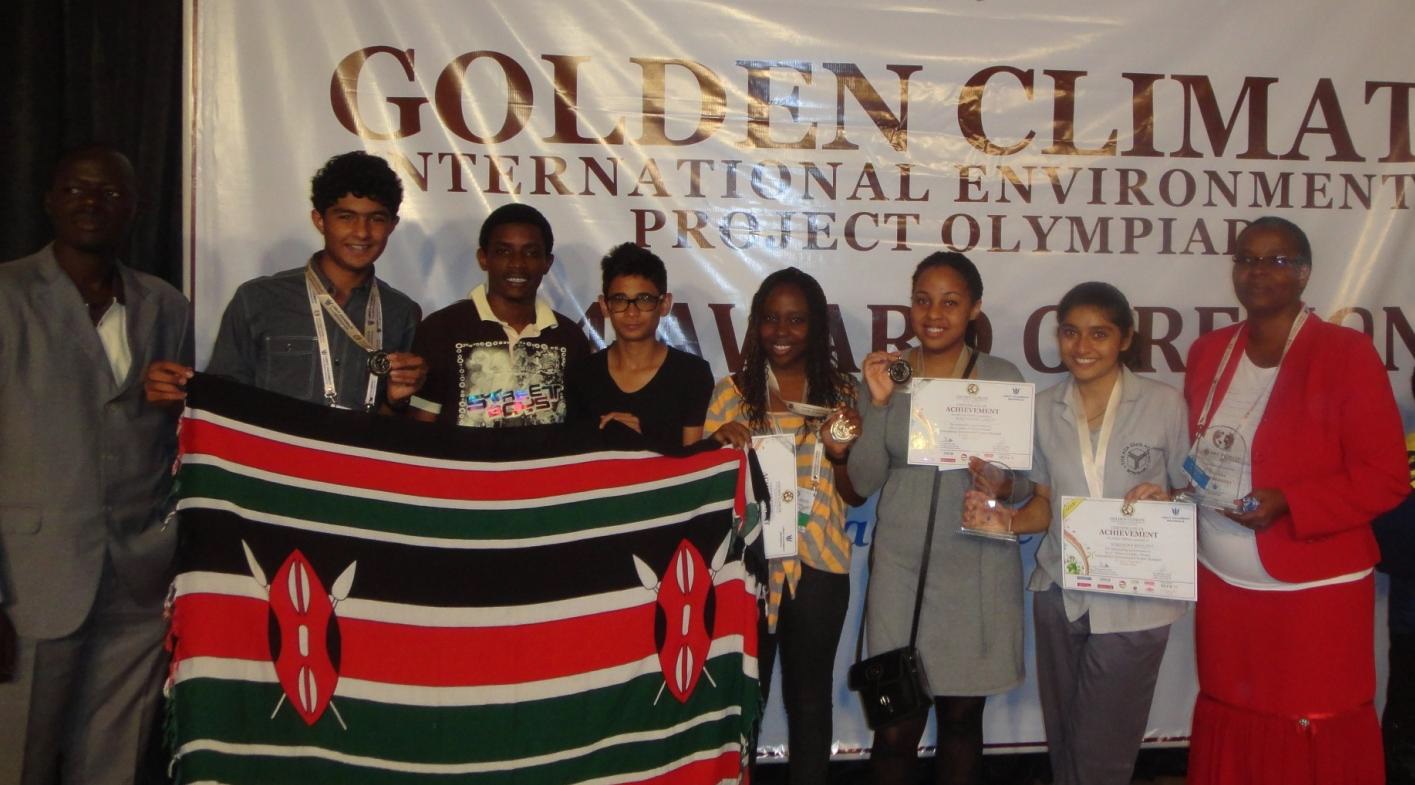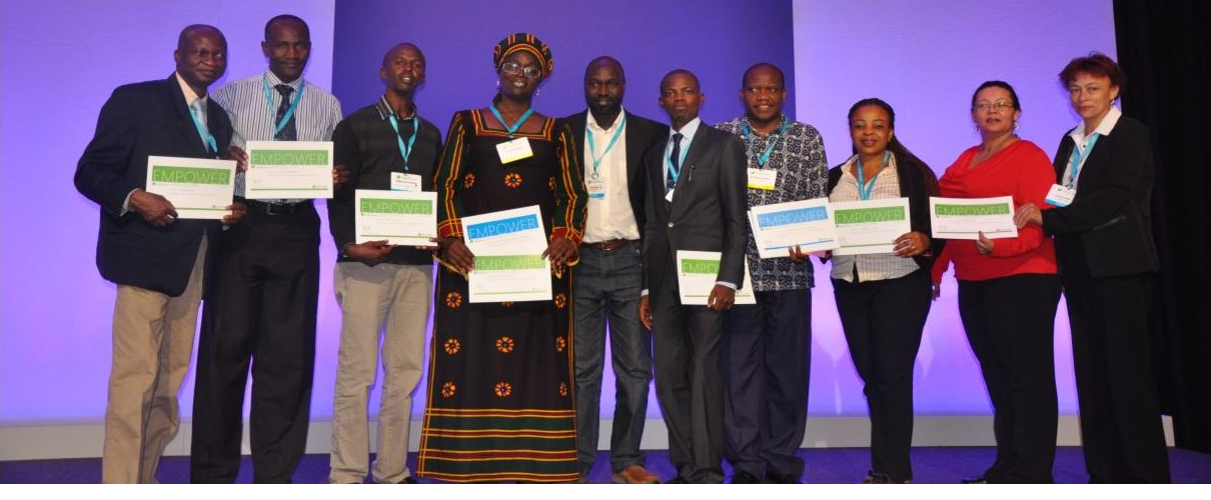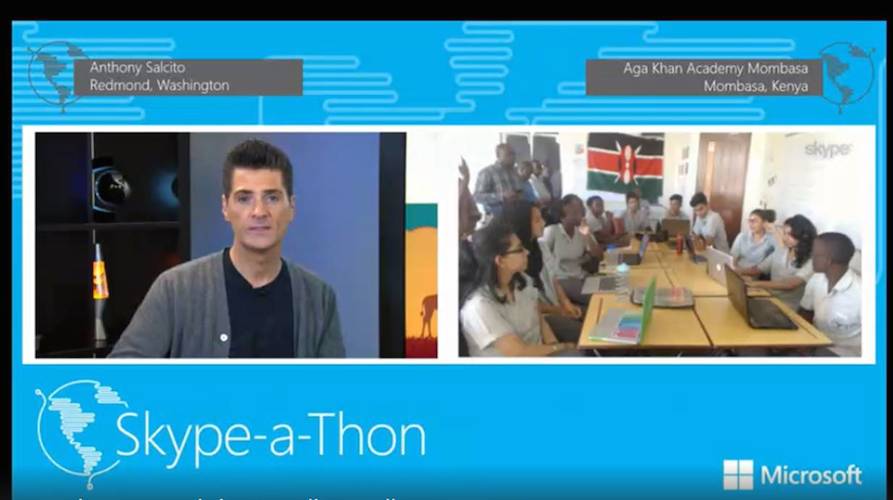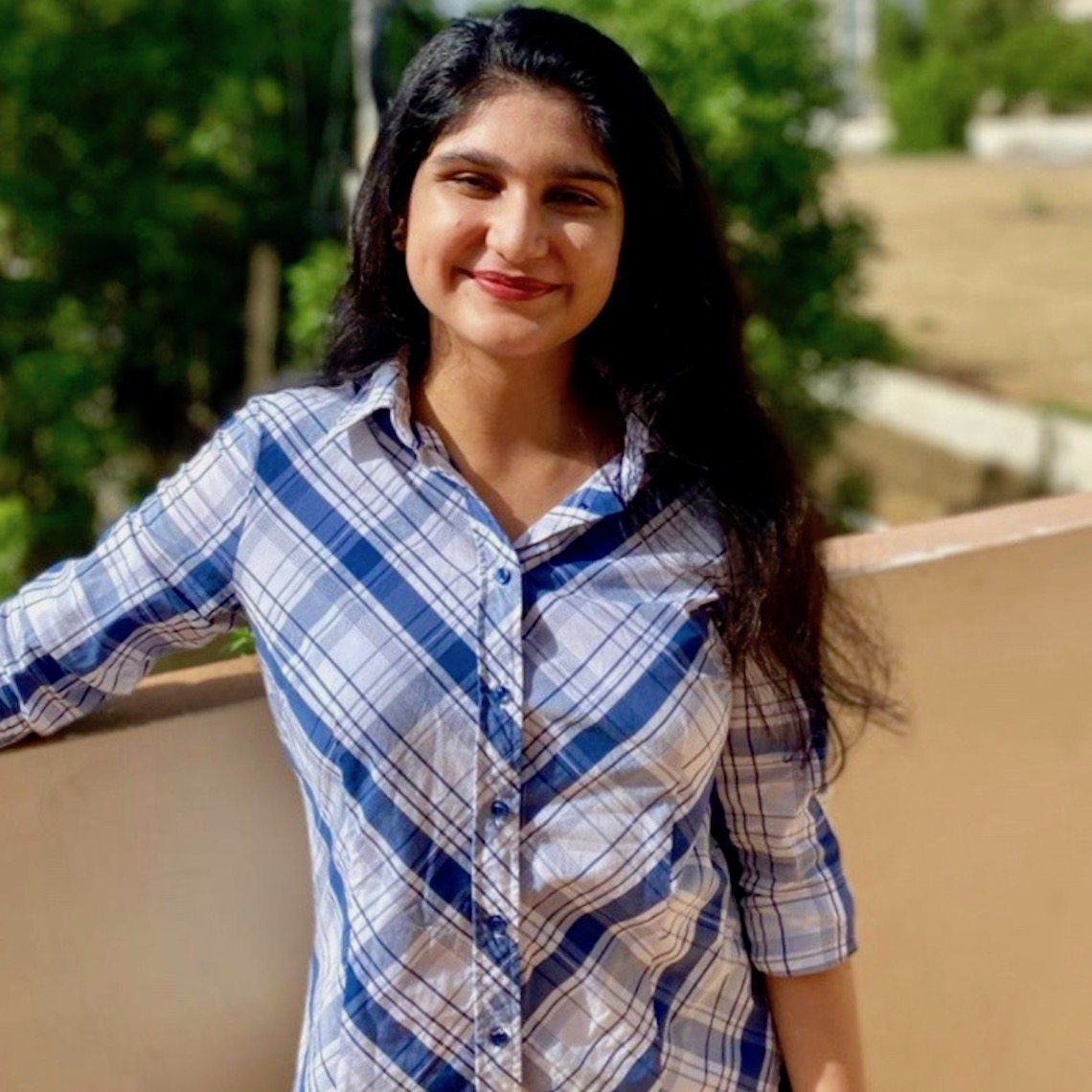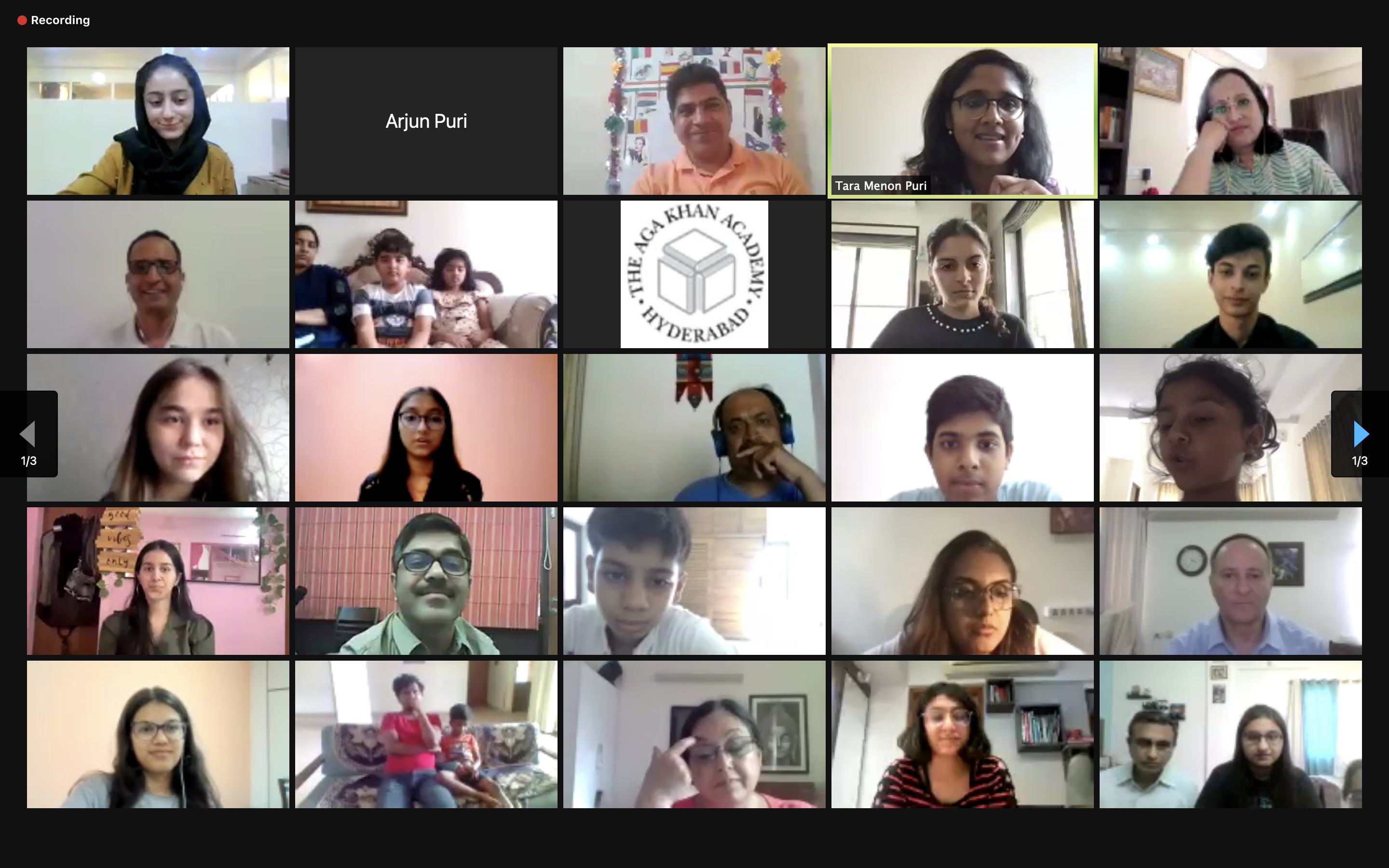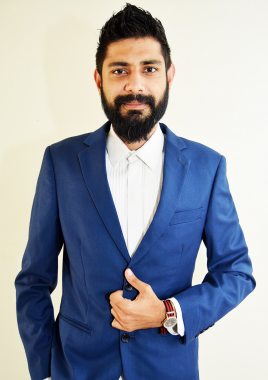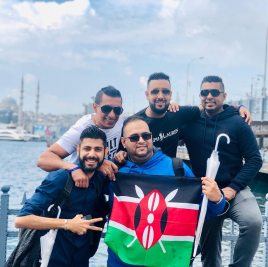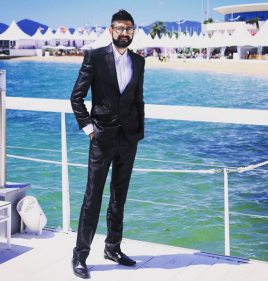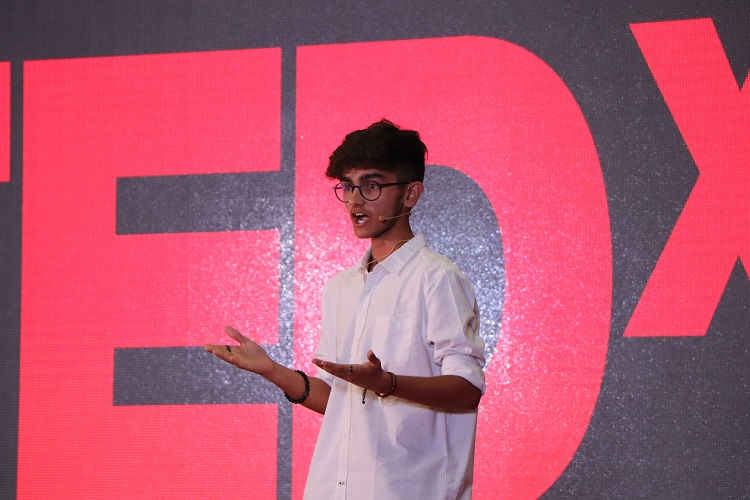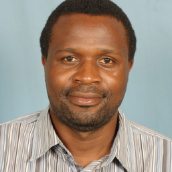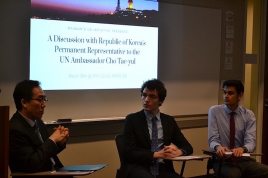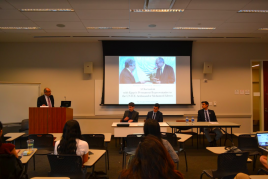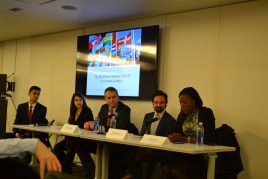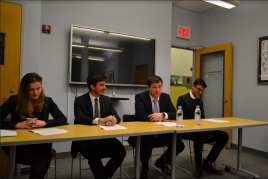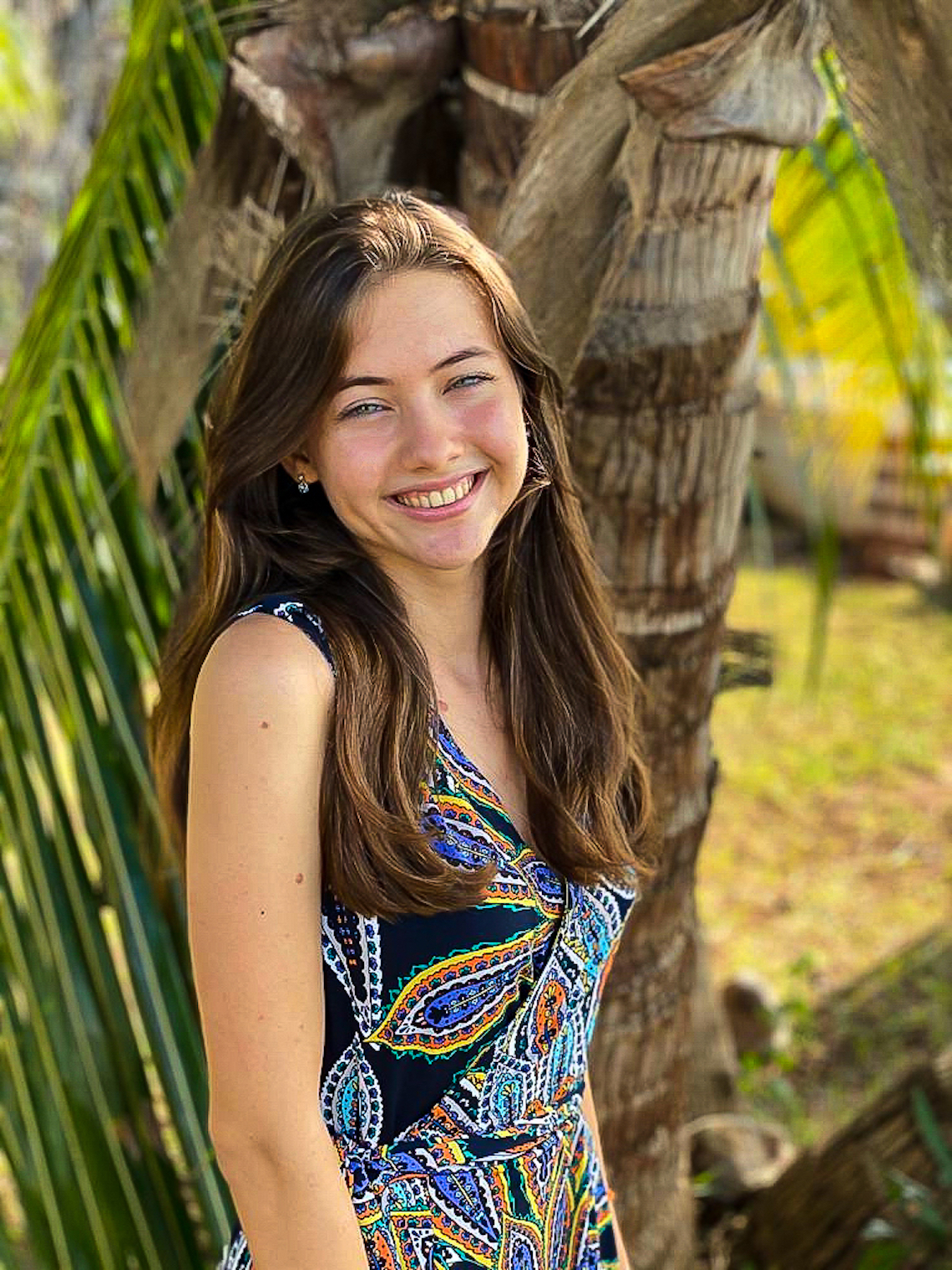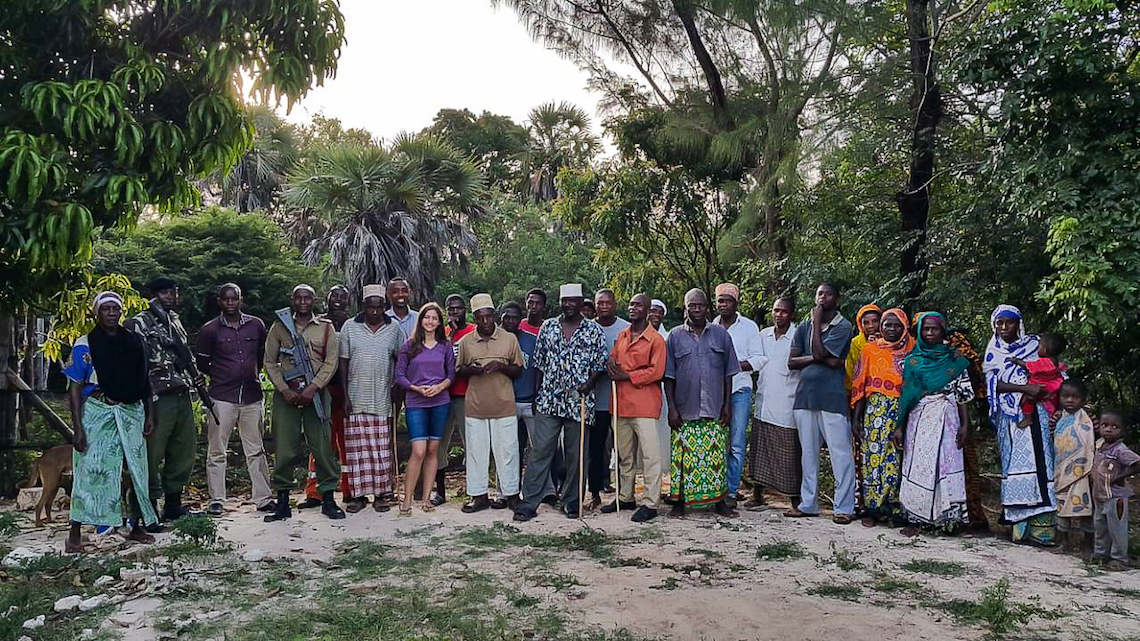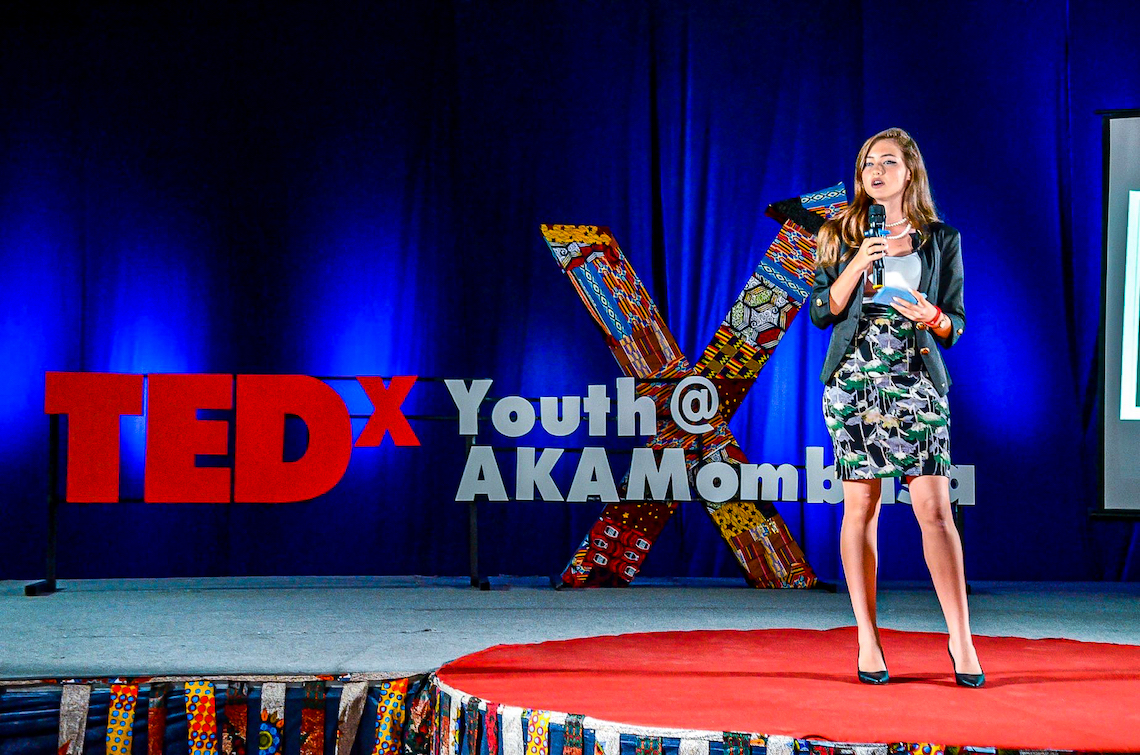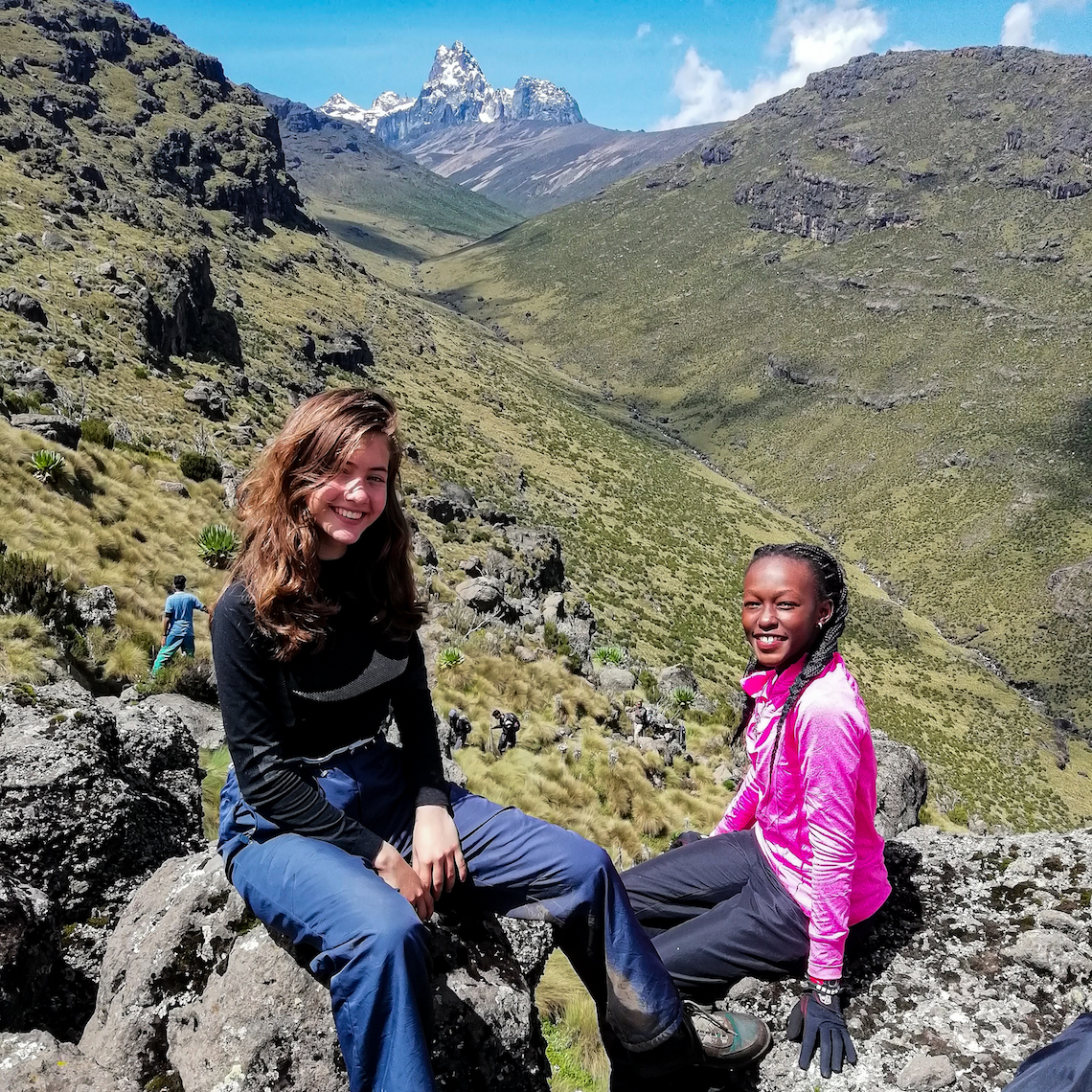Hussein Jiva (Class of 2009): A citizen of the world
Hussein Jiva graduated from the Aga Khan Academy Mombasa in 2009 after what he feels was a transformative journey.
If he is adamant about one thing, it is the notion that having an open mind allows for an individual’s personal and professional growth. The willingness to consider new ideas and listen to people whose thoughts may be different from one’s own allows one to embrace new possibilities to solve societal problems.Originally a resident of Mombasa, Hussein says it was his time at the Academy that forced him to examine his old thinking and rewrite a new chapter in his life.
“I remain a proud alumnus of the Aga Khan Academy Mombasa,” he states unwaveringly. “Given that the institution has had a huge impact in shaping my formative years.” Convinced that the Academy’s International Baccalaureate (IB) curriculum played a key role in his growth and personal development, he postulates it is the rigor of the curriculum that made him the person he is today.
“The IB curriculum education provided me with a well-rounded experience, anchored by values such as diversity, ethics, pluralism, leadership and open mindedness. On a social and cultural front, the pluralistic approach to education embraced by the Academy provided a strong foundation for me to build upon. It helped me in my journey to greater cultural understanding and tolerance, as I grew to appreciate differences in people from various backgrounds.”Hussein has a Bachelor’s Degree in Journalism and is currently pursuing a Master’s Degree in Communication Studies, with a focus on Digital Media at the United States International University–Africa in Nairobi.
Ruminating about his years at the Academy, Hussein recently spoke about how the Academy places enormous importance on its public service curriculum requisite. He feels this requirement gives students a higher purpose in life a belief that they can make a difference in the communities in which the live. Hussein’s cosmopolitan citizen-of-the-world way of thinking was borne out of this requisite.
“I recall participating in creativity, activity, service projects, one of the prerequisites to graduate from the Academy. On the surface, the concept is but a mere requirement. However, the esoteric essence of the practice provides for the development of a well-rounded individual who would ultimately contribute to the betterment of society beyond the academic sphere.”
As a journalist, Hussein has covered various local and international events including the Cannes International Film Festival from 2013 to 2016, the International Indian Film Academy Awards in 2017 and 2018 and the ICC Cricket World Cup in 2015 and ICC World T20 2016. He has also reported on momentous occasions such as Pope Francis’s visit to Kenya in 2015 and the Indian Prime Minister Narendra Modi’s visit also to Kenya in 2016.In addition, for almost eight years, Hussein worked at The Asian Weekly, a publication based in Nairobi with an East African circulation. He contributed to the Weekly as a Writer, Photographer and Sub-Editor. He later led the Sports Desk, and covering sports remains his passion.
“Sports commentary has been my area of interest, with football dominating my preferences. As such, I have written on both local and international sports, for media outlets beyond Kenya. My work has been published on portals in Nigeria, the United States and the United Kingdom. I have also been on a local television football show as a guest commentator.”
Asked what he would like to see happen in societies to make them more stable and better functioning, Hussien stated,
“Let us become instruments of change and alter the realities we face; let not challenges be viewed as obstacles to success but stepping stones toward it. After all, when you change the way you look at things, the things you look at will ultimately change.”
Zviko Katsande: Zimbabwean educator embodies global-mindedness
Raghuveer Vyas (Class of 2016): Advocating for change and development
Raghuveer Vyas graduated from the Aga Khan Academy Mombasa in 2016 with a desire to be a change-maker in our world. Due to his experience at AKA Mombasa, this desire has become a reality.
Raghuveer Vyas, far right, at a UN Initiative event at NYU.“My time at the Academy undoubtedly influenced where I am now,” Raghuveer said. “The Academy's strong emphasis on contributing back to society certainly further influenced my academic choices.”
Raghuveer pursued his undergraduate degree at New York University (NYU) in Global Liberal Studies with a concentration in Politics, Rights & Development. Currently during his final year, Raghuveer was admitted into NYU’s Bachelor of Arts (BA)/Master of Arts (MA) programme.
“Through this programme I hope to graduate with an MA in International Relations by 2021,” Raghuveer said. “I will be concentrating on Sub-Saharan African affairs and peace and conflict resolution in the International Relations programme.”
Since joining NYU, Raghuveer has been a member of the United Nations Initiative at NYU, which was created to increase the dialogue between international leaders and the youth/students who have become disconnected from the global political process. During his final year as an undergraduate, Raghuveer became the director of the Initiative because he believes “the UN Initiative’s mission and actions to be absolutely critical to the political discourse at NYU.” Due to his commitment and passion, Raghuveer said he has made some impressionable strides in the Initiative.
“I personally have worked to increase the participation of the African international leaders, such as the ambassadors of Egypt, Nigeria and the African Union,” Raghuveer said. “I’m also working to expand our panel discussion series, which focuses on thematic issues as opposed to the affairs of nation-states.”
As part of the Global Liberal Studies programme at NYU, students are required to spend a year abroad at one of NYU’s satellite campuses, such as Berlin, which is where Raghuveer decided to go. Through this, Raghuveer discovered his passion for climate change when he started interning with Climate Analytics, an international climate science and policy institution.
Raghuveer Vyas, far right, at at UN Initiative event at NYU between an ambassador from Egypt and NYU students.“I truly began to understand that climate change poses the single largest threat to the human species, and would disproportionately affect lower economic classes and citizens in developing countries, with the African continent poised to be one of the worst hit, “ said Raghuveer.
While in Berlin, Raghuveer worked as part of the climate policy team at Climate Analytics where he conducted scholarly research on the policies surrounding climate change mitigation and adaptation. As part of the team, Raghuveer said he was able to co-author a report, “Decarbonising South and South East Asia”, for the Asian Development Bank and the UN Environment Programme.
“The report aimed to investigate the current state of fossil fuel consumption in South and Southeast Asia and analyse the potential of renewable energy forms to replace these fossil fuels,” Raghuveer said.
Due to his time at Climate Analytics in Berlin, Raghuveer said he rejoined as an intern at their New York office during his final year at NYU. In New York, Raghuveer worked with the Implementation Strategy team, which assists developing countries, specifically countries in Sub-Saharan Africa and the Caribbean.
Raghuveer Vyas, far left, at a UN Initiative at NYU.“While the work I did was quite diverse, I worked quite closely with the small, and severely threatened, country of Saint Lucia,” Raghuveer said. “The country was attempting to receive financing from the international community to realise its ambitious National Adaptation Plan for climate change. I got to work on the national Private Sector Engagement Strategy (PSES), which chartered, among other things, a means through which the government could better engage with the country’s private sector in making them more resilient to climate change. This was submitted to the Saint Lucian government in early December, with the Cabinet of Ministers poised to read it in the new year.
Along with this, Raghuveer said he has worked on preliminary research for a universal Green Affordable Housing Project for Saint Lucia, which “aims to create a relocation and housing system that is resilient to the effects of climate change and compensate victims.” Raghuveer said he also drafted a funding proposal for Saint Lucia, “which aimed to revamp the national health sector and make it more resilient to climate change, both in terms of service provision and infrastructural soundness.”
Although his interests aren’t only focused on climate change, Raghuveer said he understands the urgency of recognising this phenomenon and the implications it can have on the entire world.
“Climate change is somewhat personal to me as I come from a farming family in Kenya,” Raghuveer said. “I’ve directly witnessed the impacts of a changing climate on the farm and seen how widespread the impacts are. For me, climate change has provided a unique lens through which to understand and question some of the perennial challenges facing the Global South.”
Reflecting on his time at the Academy, Raghuveer said he would not be where he is now had it not been for the various opportunities he received and the different skills he learned at the Academy.
“I first discovered my passion for global politics at AKA Mombasa through different platforms ranging from participating in Model United Nations, to having an incredible team of Humanities and Global Politics teachers who all really encouraged me to hone in my skills in the subject,” Raghuveer said. “A lot of necessary skills, such as critical thinking and analytical writing, were taught to us at the Academy, making it far easier for me to adjust to the demands of college.”
Raghuveer Vyas, far right, at the NYU Jordan Center.Although Raghuveer is unsure of what he’ll do after his Master’s at NYU, he said he is looking forward to what the future has in store for him.
“I’m excited to be a student during one of the most fascinating and influential eras in Global Politics and I’m looking forward to learning more about the various issues that grip us as an international community,” Raghuveer said.
By Anusha Lalani
Cinzia Torriani: The budding environmental activist
Growing up on Funzi Island, a settlement in Kenya, Cinzia Torriani, a Diploma Programme 1 student at the Aga Khan Academy Mombasa, has seen the impact climate change can have on the environment and the people within it.
“I saw the aquatic life in the bay that surrounded a part of the island deteriorate over time,” Cinzia said. “Fish disappeared from the easy view of the waters, dolphins, which would appear annually, stopped appearing, and I would even hear stories of animals that were once habitants of the bay as now a distant memory. Contrary to this, the number of fishermen stayed the same, and at some point, every small fish in the ocean was being caught to feed a fisherman’s family. I realised that a majority of the motives put in place on the island for helping the environment served little purpose towards establishing a feasible way forward to ensure locals, who depend on the ocean, would remain economically stable.”
By seeing this and her parents’ personal initiatives toward the environment, Cinzia channeled her energy into becoming an environmental activist, focusing on ways to better her environment while also keeping in mind the local community.
“My goal is to ensure sustainable economic and ecological development to consider both my love for my surroundings, but also the community,” Cinizia said.
Taking action
One of the first initiatives Cinzia made in relation to her goal happened a year ago during her Year 10 personal project, which allows students to collaborate with individuals in their local community to address an issue or challenge. Cinzia created an integrated farming system combining a fish farm, chicken farm and maize farm in a self-sufficient cycle. Through this system, human efficiency would be maximised; the harvest timeline would be effectively eradicated; and locals would be provided with an alternative and more productive way to get fish from the ocean.
“I was able to build this system and present it to the locals in my community while also further spreading the word about my personal project,” Cinzia said.
Following the completion of her personal project, Cinzia was able to further spread her message about the environment by speaking at the 2019 TEDxYouth event held at the Academy. In her talk, Cinzia spoke about the importance of fighting complacency in order for action to be taken toward the environment, while also discussing her personal project as a way of implementing a new agricultural system.
“This was one of the most thrilling and greatest memories I hold,” Cinzia said. “I was able to use my voice as a way to spread my opinions and ideas on what mattered to me to a group of people who were interested in listening. From this, my story was published in one of the nation’s newspapers, Business Daily, about my project, my TEDx talk and my future goals. This provided me with the opportunity to convey my message about environmental sustainability to a larger audience.”
During this academic year, Cinzia has taken steps to further her goal and spread awareness about the environment. This was seen during the Academy’s annual Peace Summit, which is a two-day event bringing together students from the Academy and around Mombasa to discuss peace and conflict resolution. The theme for this year’s Summit was “Climate Action for Peace” with Cinzia being selected as the female student lead for the event.
“The aim of the Summit was to take students through several thought-provoking and interactive activities to question their stand as activists for peace, linking this directly to the environment’s state,” Cinzia said. “From discussions on the dangers of rising sea levels, to water scarcity, to the impacts of desertification and drought, the students promoted the value of being environmentally conscious and reflecting on the actions of mankind.”
Another way Cinzia was able to spread awareness about the environment was through community service. As part of the International Baccalaureate, Diploma Programme students have to create a community service group or be a part of an existing one. For Cinzia, she saw this as an opportunity to reconnect with the local community and spread awareness.
“My friend and I created a community service project at the Academy called iSEAyou,” Cinzia said. “Our current goals include making use of polluted materials to create purchasable furniture and art, as well as promoting sustainable environmental development without any implications on the economic standards of members of society through creating and building projects, such as those I proposed in my personal project.”
Looking forward
As Cinzia continues to decide what she wants to study when she goes to university, she said she will always be an environmental activist wherever she goes. and is forever grateful for those who have guided her to get to where she is.
“I feel that no matter what career path I go into, it has become a hobby and a joy to raise awareness on the environment and work towards more environmentally-friendly systems in society,” Cinzia said.
For Cinzia, being an environmental activist doesn’t mean dedicating your entire life to the environment. She said anyone can be an advocate for the environment through various, simple ways.
“Personally I feel that simply having the strive to make a difference completely changes the path for society in order to reach end goals,” Cinzia said. “I feel that students at the Academy should work towards becoming more environmentally-conscious throughout their day-to-day lives to take little actions that make a great difference. Involvement in different initiatives taking place at the Academy also helps grow one’s character, and I feel that this is a prospect that should not be missed. I would actively encourage students to join these different teams and groups and work towards the betterment of the planet.”
Reflecting on the time she has spent so far at the Academy, Cinzia said she appreciates the supportive and nurturing environment at the Academy, which has opened many doors of opportunity for her. She said she is also grateful for her friends and family who have guided her and stood by her side throughout this all.
“The Aga Khan Academy Mombasa has instilled lifelong ethical values in me,” Cinzia said. “Through this education, I have gained a great awareness on the importance of continuously considering my environment and my community in decision-making. The values of giving back to your community and the opportunities provided by the Academy to do so are endless and truly incredible. My teachers at the Academy were one of my anchors of support as they continuously encouraged me to reach my goals and push harder. I cannot give enough gratitude to Mrs. Susan Abuto who, as the head of the Individuals and Societies department, has guided me throughout this journey, especially in spearheading this academic year’s Peace Summit. I also would not have been able to reach many of my goals without the support of my friends, family and special people in my life who stood by my side throughout this long process.”
